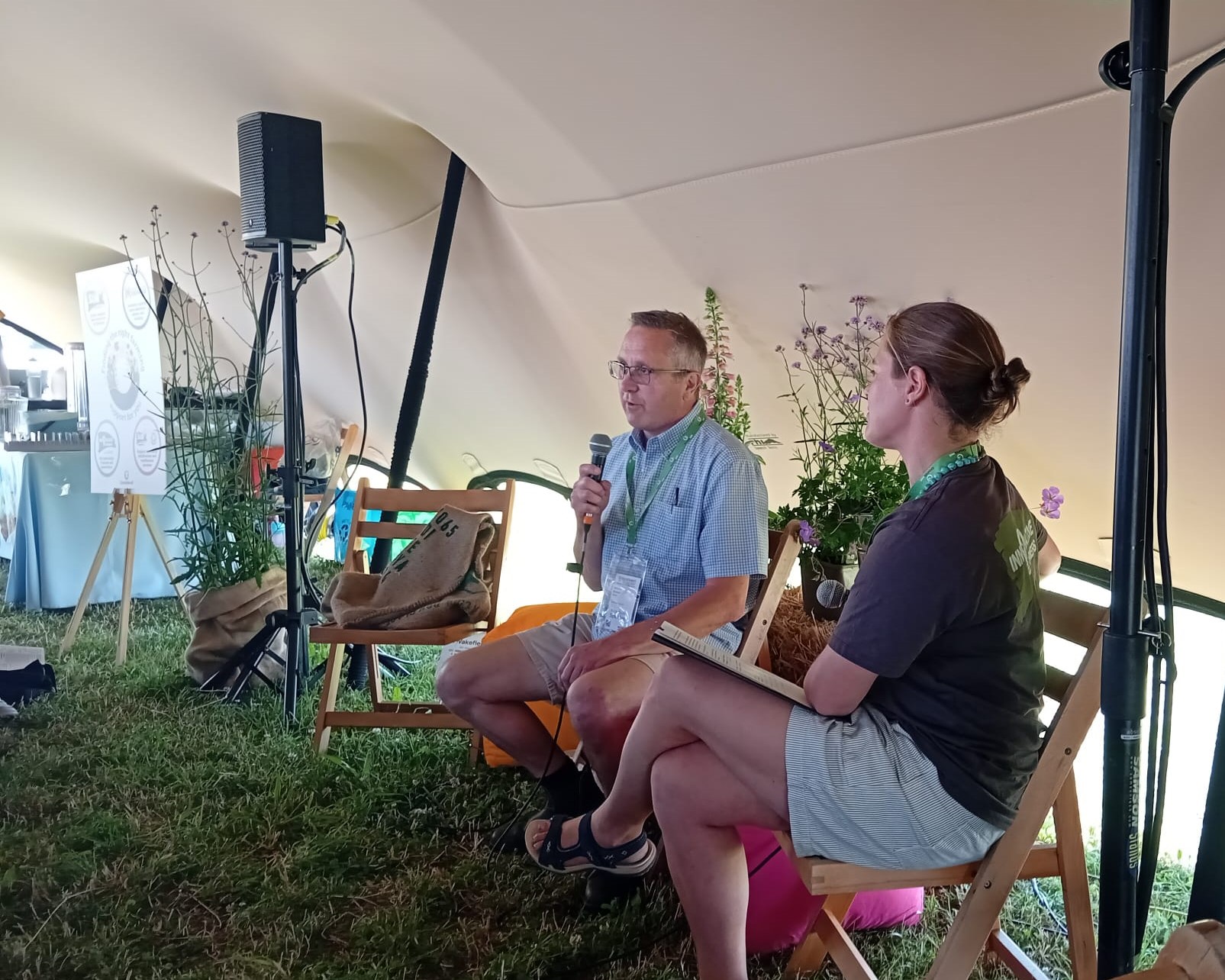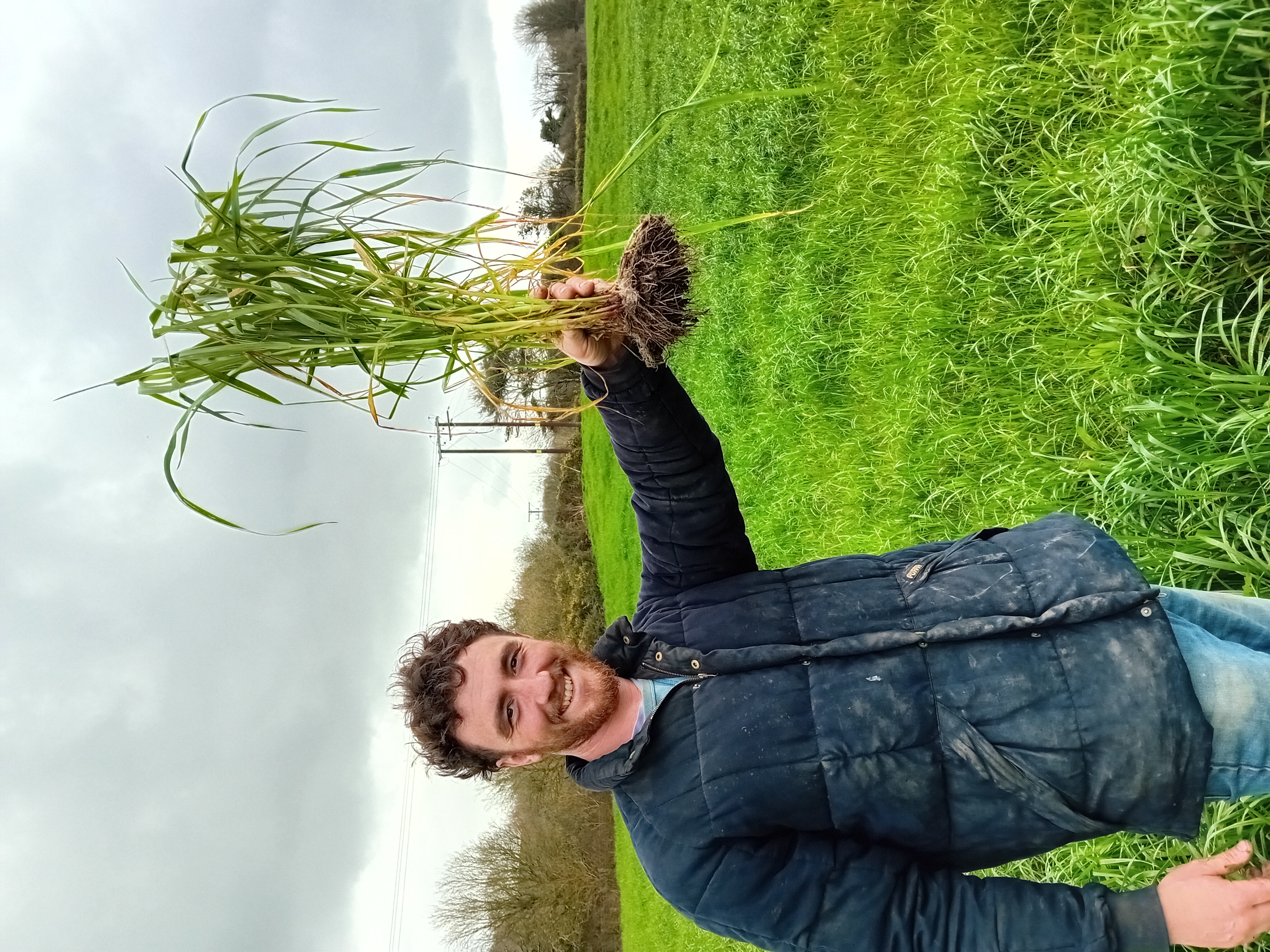




Establishing diverse swards can improve the resilience of grazing platforms. However, the un-quantified effect of increased sward diversity on milk yield and quality is a potential financial risk for dairy farmers. This effect on milk has not been trialled and recorded in the UK before.
In this Farm Net Zero field lab Andrew Brewer, dairy farmer in Cornwall, will monitor the difference between milk produced by cows grazing a rye grass sward, and cows grazing a herbal ley / diverse sward.
Alongside the trial a discussion group of Cornish farmers will explore the benefits of their own herbal leys, and follow the trial results.
The idea for this field lab arose from the Farm Net Zero project discussion groups, and it is part of the Farm Net Zero Project in Cornwall, funded by the National Lottery Community Fund.
The research is being led by Dr Daniel Enriquez Hidalgo of Bristol Veterinary School, with assistance form Cornwall Wildlife Trust and Trifolium Services.
There are many accepted benefits of growing herbal leys, they can:
However, there has never been a study in the UK looking directly at the impacts of herbal leys on milk for dairy farmers. This field lab aims to look at the impacts.
Andrew Brewer will monitor milk throughout the grazing season.
The dairy herd on each farm will be split into two groups; one will be grazed on a standard rye grass-clover ley. The rest of the herd will be grazed on herbal leys. The milk yield and main constituents will be regularly monitored from each group. The forage will be sampled and analysed monthly throughout the growing season to get an idea of which species are dominating.
The trial will last for one year.
The final report summarises the learnings and results from the field lab. It concluded that despite the different herbage characteristics between perennial ryegrass with or without white clover and multi-species swards, cows grazing either of these swards had similar milk yields and milk composition in an on-farm setting.
The similar milk production is a positive result, since this entails that multi-species swards can provide other soil and environmental benefits, without compromising cows’ milk production
The trial was restricted by the complications associated with splitting the herd in a real farm context, the extremely wet weather and the complications associated with forage sampling within 3 days of milk testing. All these issues meant that we did not achieve as large a data set as we would have liked. It would have been interesting to see whether the results changed further into the autumn. This was an ambitious trial, which is why it has not been carried out in the UK before.
The full report can be found in the results/ reports section of the website.
Andrew shared his experiences of working with herbal leys in dairy at the Soil Association tent. After a brief Q and A with trial coordinator Laura Gude, Andrew competently fielded a wide range of technical questions from the 50 strong session audience on the trial and herbal leys in general.

Triallist Andrew Brewer shares his knowledge and experience at Groundswell
Conor from Cornwall Wildlife Trust braved the driving Cornish rain to collect the April forage samples this week.

The trial cows have now been split into their groups, with half grazing ryegrass and the others grazing diverse swards.
The trial cows will be moved onto the sampled areas immediately after sampling. The milk yield will be recorded tomorrow, and the milk sampled for constituents, including butterfat and protein. This should give us a picture of the impact forage type has on milk. This will be repeated monthly throughout the grazing season until roughly November.
The first forage sampling was carried out today at the trial farm. Conor Kendrew at Cornwall Wildlife Trust collected samples from both the diverse swards and the ryegrass swards that the cows will be grazing tomorrow and over the next few days. Forage samples will be taken monthly by the group to get a good understanding of what species are growing in the fields which the two groups of cows will be grazing.

Conor Kendrew at Cornwall Wildlife Trust checks out the grass in the trial fields
Wet weather has delayed grazing plans this year, so Andrew Brewer, the farmer, has been unable to split the cows into their trial groups yet. Let's hope it dries up soon.
Jan 24
Mar 24
Jun 24
Aug 24
Nov 24
Jan 25

Soil Association
Bristol / South West
As the Innovative Farmers Network Coordinator, Laura engages with farmers, scientists, industry bodies and advisors to launch on-farm trials, ensure they keep running smoothly, and to share results. With an MSc in Sustainable Rural Development, Laura trained as a land agent. She then worked as a farming advisor in Devon, particularly on projects aimed at reducing diffuse water pollution in river catchments.

Cornwall

University of Bristol
Bristol

Cornwall